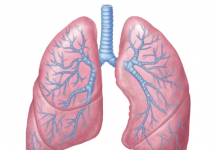An immune deficiency disease or an immunodeficiency disease is a kind of a disease or disorder which prevents the body from being able to fight infections as well as diseases in the way that it is meant to. Basically any such disease makes you much more susceptible to catching viruses and infections etc. An immunodeficiency disease occurs when one or more cells within the immune system do not function properly or the entire system is absent.
A person who has an immune deficiency of any kind is called immuno compromised which means that the person is vulnerable to opportunistic infections. There are many types of immune deficiency diseases; some are quite common while the others are rare. The details of various types of immune deficiency diseases is given in the below part of the article.
Primary Immune Deficiency
A primary immune deficiency disease is a kind of an immunodeficiency disorder which occurs in the case when the problems or abnormalities of the immune system develop from an inborn defect in the cells. Some of these affected cells are B-cells, T-Cells and phagocytic cells.
Most of the diseases which fall into this category are inherited diseases. Some examples of primary immune deficiency diseases include X-linked agammaglobulinemia (XLA) and Severe Combined immunodeficiency (SCID). These are the examples of the inherited diseases whereas some other examples include common variable immunodeficiency (CVID) etc.
There are about 150 types of primary immunodeficiency diseases identified by researchers. They are classified into 5 different categories which are given as follows:
- T-cell deficiencies
- B-cell deficiencies
- Combined T-cell and B-Cell deficiencies
- Defective phagocytes
- Complement deficiencies
Secondary Immune Deficiency
This type of an immunodeficiency disease occurs when the damage in the cells or the immune system is caused as a result of an environmental factor. Some of these environmental causes for this disorder are burn, radiation, chemotherapy and infections etc. A very well known example of a secondary immune deficiency disease is Acquired Immune deficiency syndrome or AIDS which is caused by the Human Immunodeficiency Virus or HIV.
In some cases, a secondary immunodeficiency disease may also be caused by other factors like aging, malnutrition and certain particular medications such as immunosuppressive drugs and glucocorticoids etc. When people take medications to suppress the responsiveness of the immunity system, they might suffer from a secondary immune deficiency disease.













